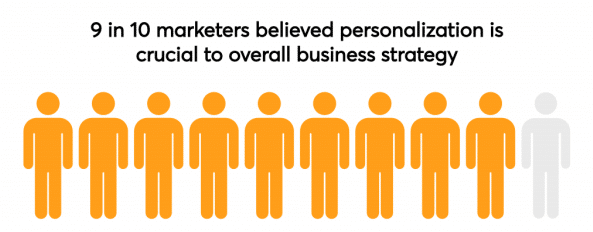Table of Contents:
- Introduction
- Highlighting the issue: Declining engagement with hotel emails (open rates, CTR, unsubscribe rates).
- Introducing the concept that email marketing for hotels needs an update to remain effective.
- The Importance of Email Marketing in the Hospitality Industry
- Statistics supporting the effectiveness of email marketing.
- The cost-efficiency and personalization benefits of email marketing.
- Changes in Email Marketing Practices for 2024
- New regulations from email providers affecting marketing strategies.
- The necessity for valuable content to combat increased ease of unsubscribing.
- The Advantages of a Multi-channel Communication Strategy
- Understanding guest preferences for communication channels beyond email.
- The importance of tailoring messages to the appropriate channel.
- Developing an Effective Hotel Email Marketing Strategy
- Understanding Your Guests: The role of data in personalizing communication.
- Segmenting Your Audience: The importance of targeting messages.
- Engaging Content Creation: Strategies for maintaining subscriber interest.
- Utilizing A/B Testing: The benefits of testing for optimizing email effectiveness.
- Analyzing and Optimizing: Continuous improvement based on performance metrics.
- Embracing Automation: The efficiency and timeliness of automated emails.
- Avoiding Common Email Marketing Mistakes
- The pitfalls of generic messaging and finding the right frequency for communications.
- The importance of optimizing emails for mobile devices.
- Conclusion
- The ongoing relevance of email marketing for the hospitality industry.
- The need for hotels to adapt to changing technologies and guest expectations to maximize the benefits of email marketing.
This outline captures the key points and structure intended for this article that addresses the evolving landscape of email marketing for hotels, emphasizing strategic adjustments, multi-channel communication, and the need for continuous optimization to maintain engagement and effectiveness.
Introduction
In today’s digital landscape, where consumers are bombarded with countless promotional emails daily, hotel marketers face a significant challenge: declining engagement with their email campaigns. Metrics such as open rates, click-through rates (CTR), and unsubscribe rates paint a grim picture, indicating that traditional email marketing strategies in the hospitality industry are losing their effectiveness.
This article delves into the necessity for hotels to update their email marketing strategies to remain relevant and effective in reaching their target audience.
The Importance of Email Marketing in the Hospitality Industry
Email marketing has long been a cornerstone of digital marketing strategies for hotels, and for good reason. It offers a direct line of communication with past, present, and potential guests, allowing hotels to engage with them on a personal level. However, the effectiveness of email marketing in the hospitality industry is not just anecdotal; it’s backed by compelling statistics:
- According to research, email marketing delivers an average return on investment (ROI) of $42 for every $1 spent, making it one of the most cost-effective marketing channels available.
- Personalized emails generate six times higher transaction rates than non-personalized emails, showcasing the power of targeted messaging in driving conversions.
- Studies reveal that 58% of consumers say that email marketing influences their purchasing decisions, highlighting its significant role in shaping consumer behavior.
Moreover, email marketing allows hotels to tailor their messaging based on customer preferences, behavior, and demographics, fostering a deeper connection with their audience. By leveraging data analytics and segmentation techniques, hotels can deliver relevant content and offers, enhancing the overall guest experience.
The Need for an Update
Despite the undeniable benefits of email marketing, the hospitality industry is witnessing a decline in key performance indicators associated with email campaigns. Open rates are dwindling, CTRs are stagnating, and unsubscribe rates are on the rise. These trends signify a growing disconnect between hotels and their email subscribers, signaling the urgent need for a strategic overhaul.
One of the primary reasons behind this decline is the changing consumer behavior and preferences. Today’s consumers are inundated with promotional emails from various brands vying for their attention. As a result, they have become more discerning and selective about the emails they choose to engage with. Generic, one-size-fits-all messages no longer resonate with them.
To combat email fatigue and regain the attention of their audience, hotels must adopt a more sophisticated approach to email marketing.
This entails:
- Personalization: Tailoring email content based on customer data, preferences, and past interactions to deliver relevant and compelling messages.
- Segmentation: Dividing the email list into distinct segments based on demographics, behavior, or interests to send targeted communications that resonate with specific audience segments.
- Automation: Implementing automated workflows to send timely and personalized emails at various stages of the customer journey, from booking confirmation to post-stay feedback requests.
- Visual Appeal: Enhancing the visual design of emails with captivating imagery, engaging layouts, and mobile-responsive templates to grab the recipient’s attention and encourage interaction.
- Value-Driven Content: Providing valuable and informative content that goes beyond promotional offers, such as destination guides, local recommendations, and insider tips, to enrich the recipient’s experience.
By embracing these strategies, hotels can revitalize their email marketing efforts, rekindle engagement with their audience, and drive measurable results.

Changes in Email Marketing Practices for 2024
As we venture further into the digital age, the landscape of email marketing continues to evolve, presenting both challenges and opportunities for businesses, particularly those in the hospitality industry. In 2024, several key changes are reshaping email marketing practices, necessitating a reevaluation of strategies to ensure effectiveness and compliance.
One significant development is the implementation of new regulations by email providers, which have a profound impact on marketing strategies. With heightened concerns over privacy and data protection, email service providers have tightened their policies, making it more challenging for marketers to reach their target audience. Strategies that once relied on mass emailing and aggressive tactics are now met with stricter scrutiny, requiring a shift towards more ethical and permission-based approaches.
Additionally, the ease of unsubscribing from email lists has increased, posing a challenge for marketers to maintain subscriber engagement. As consumers gain more control over their inbox, they are quick to unsubscribe from emails that fail to deliver value or relevance. This underscores the necessity for businesses to prioritize the delivery of valuable content that resonates with their audience’s interests and needs.
In response to these changes, successful email marketing strategies in 2024 prioritize quality over quantity, focusing on building meaningful relationships with subscribers through personalized, targeted, and value-driven content. By adapting to these shifting dynamics, businesses can maintain their competitive edge and maximize the effectiveness of their email campaigns.
The Advantages of a Multi-channel Communication Strategy
While email remains a powerful tool for reaching and engaging with customers, the hospitality industry is recognizing the importance of adopting a multi-channel communication strategy to cater to diverse guest preferences and behaviors.
Beyond email, guests are increasingly utilizing various communication channels such as social media, messaging apps, and chatbots to interact with businesses. Understanding and accommodating these preferences are crucial for hotels seeking to enhance guest satisfaction and loyalty.
Moreover, not all messages are best conveyed through email. Certain communications, such as booking confirmations, reservation updates, and personalized offers, may be more effectively delivered through alternative channels that offer immediacy and convenience.
Tailoring messages to the appropriate channel ensures that they reach guests in the most effective and engaging manner possible. For instance, a promotional offer may garner better traction on social media, where visual content is highly impactful, while personalized service inquiries may be better suited for direct messaging platforms.
By embracing a multi-channel communication strategy, hotels can broaden their reach, deepen guest engagement, and deliver a seamless and personalized experience across various touchpoints. This integrated approach not only enhances the overall guest experience but also enables hotels to stay ahead of the curve in an ever-evolving digital landscape.
In the ever-evolving landscape of digital marketing, email remains a stalwart tool for hotels seeking to engage with their guests effectively. However, to stand out in crowded inboxes and drive meaningful results, hotels must develop and implement a well-rounded email marketing strategy. Let’s delve into the essential components of crafting an effective hotel email marketing strategy and common mistakes to avoid.
Developing an Effective Hotel Email Marketing Strategy
- Understanding Your Guests: Data is the bedrock of personalization. By leveraging guest data, hotels can tailor their communications to individual preferences, behaviors, and demographics, fostering a deeper connection with their audience.
- Segmenting Your Audience: One size does not fit all. Segmenting your email list based on factors such as location, booking history, and interests allows for targeted messaging that resonates with specific audience segments.
- Engaging Content Creation: Content is king, even in email marketing. To maintain subscriber interest, focus on delivering valuable, relevant, and visually appealing content that captivates and informs.
- Utilizing A/B Testing: Don’t leave success to chance. A/B testing allows hotels to experiment with different subject lines, layouts, and calls to action to optimize email effectiveness and drive better results.
- Analyzing and Optimizing: Data-driven decision-making is key. Regularly analyze performance metrics such as open rates, click-through rates, and conversion rates to identify areas for improvement and refine your email marketing strategy accordingly.
- Embracing Automation: Efficiency meets personalization with automation. By automating emails for tasks such as welcome messages, booking confirmations, and post-stay follow-ups, hotels can deliver timely and relevant communications at scale, enhancing the guest experience.
Avoiding Common Email Marketing Mistakes
- Generic Messaging: One of the biggest pitfalls is sending generic, one-size-fits-all emails that fail to resonate with recipients. Personalization is paramount for driving engagement and conversions.
- Frequency Overload: Bombarding subscribers with too many emails can lead to fatigue and increased unsubscribe rates. Find the right balance by respecting your audience’s inbox and delivering content of value.
- Mobile Optimization Neglect: In an increasingly mobile-centric world, neglecting to optimize emails for mobile devices can result in a poor user experience and missed opportunities. Ensure that your emails are mobile-responsive for seamless viewing on smartphones and tablets.
Conclusion
In an era where consumer attention is a scarce commodity, hotels must adapt their email marketing strategies to remain competitive and effective. By prioritizing personalization, segmentation, automation, visual appeal, and value-driven content, hotels can create meaningful connections with their audience, enhance the guest experience, and ultimately drive revenue growth. It’s time for hotels to embrace innovation and evolution in their email marketing approach to thrive in the digital age.
As email marketing practices continue to undergo transformation in 2024, businesses must remain agile and adaptive to navigate these changes successfully. By prioritizing valuable content, adhering to regulatory requirements, and embracing multi-channel communication strategies, hotels can effectively engage with their audience, foster loyalty, and drive business growth in the digital age.
Despite the proliferation of digital marketing channels, email marketing remains a cornerstone of success for hotels in the hospitality industry. By understanding the importance of data-driven personalization, segmentation, engaging content creation, A/B testing, automation, and avoiding common pitfalls, hotels can develop and execute email marketing strategies that drive results and foster lasting guest relationships. As technology and guest expectations continue to evolve, hotels must remain adaptable and innovative to maximize the benefits of email marketing in an ever-changing landscape.

